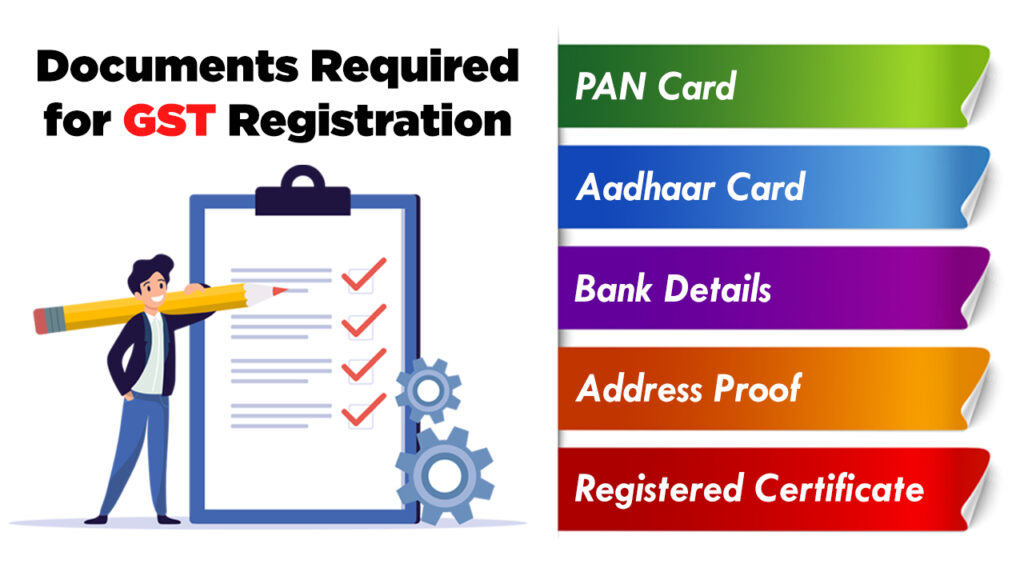Top Tips for a Smooth Singapore GST Registration Experience
Top Tips for a Smooth Singapore GST Registration Experience
Blog Article
Making The Most Of Tax Effectiveness: Professional Tips on Browsing the GST Enrollment Maze for Tiny Companies
Browsing the complex landscape of Item and Provider Tax Obligation (GST) registration can be a labyrinthine job for small businesses aiming to optimize their tax obligation performance. In this conversation, we will certainly explore professional insights and workable guidance that can encourage little companies to browse the GST registration labyrinth properly and enhance their tax obligation effectiveness.
Eligibility Standards
Eligibility demands for Small Business GST Enrollment incorporate specific requirements that organizations have to fulfill to abide with tax obligation laws. To certify for GST registration, a service must have a yearly turn over surpassing the limit established by the tax obligation authorities, which varies by country.

Paperwork Demands
To effectively finish the process of GST enrollment, little companies have to ensure they have all essential paperwork in order. The required documentation normally consists of evidence of organization registration or incorporation, address and identity proofs of business proprietor, pictures, savings account information, and evidence of the major place of service. Additionally, businesses require to offer information of their company activities, consisting of the goods or services supplied. It is essential to ensure that all papers are accurate, up to date, and in the defined style to stop delays or denials throughout the enrollment process.
Keeping all essential documents organized and easily easily accessible can simplify the enrollment procedure and assistance companies comply with the demands efficiently. Thorough focus to detail and adherence to the documentation standards are crucial for a successful GST enrollment process for tiny companies.
Timing Factors To Consider
Considering the important documents requirements have actually been diligently addressed, the next vital element for small companies beginning on the GST enrollment process is the calculated administration of timing factors to consider. Timing plays an essential role in GST registration, affecting not only conformity yet also financial elements of business. Small businesses require to carefully intend the timing of their GST registration to maximize benefits and decrease possible threats.

Moreover, services must line up the timing of their GST registration with their functional preparedness. Sufficient prep work, such as updating accounting systems and training team, is vital to effortlessly integrate GST demands into daily procedures. By tactically handling timing considerations, local business can browse the GST registration procedure effectively and maximize their tax performance.
Enrollment Refine Tips
Efficiently navigating the GST enrollment procedure calls for little companies to implement critical and aggressive registration process ideas. This consists of company registration files, evidence of address, bank declarations, and identification proofs of the business owners.
Additionally, official source comprehending the thresholds and demands for GST enrollment based on the details state or territory where the business runs is vital. Some states have various turnover thresholds that trigger required registration, so being informed regarding these thresholds can assist businesses prepare in advance.
One more useful idea is to take into consideration looking for professional assistance from accounting professionals or tax consultants who focus on GST enrollment. Their knowledge can enhance the process, reduce mistakes, and make sure compliance with all regulations.
Compliance Best Practices
Little services should prioritize compliance to prevent fines and preserve an excellent standing with tax authorities. Tiny organization owners must routinely evaluate government guidelines and look for specialist recommendations if needed to ensure they the original source are satisfying all needs. By integrating these conformity finest methods right into their procedures, small businesses can navigate the complexities of GST enrollment with self-confidence and performance.
Verdict
In verdict, local business can navigate the GST registration puzzle by guaranteeing they satisfy eligibility requirements, gather needed paperwork, think about timing implications, follow enrollment process pointers, and stick to conformity best techniques. By making best use of tax obligation effectiveness through appropriate GST enrollment, businesses can improve their financial management and procedures.
Navigating the elaborate landscape of Product and Services Tax (GST) enrollment can be a labyrinthine task for tiny services aiming to maximize their tax obligation effectiveness.Eligibility requirements for Small Business GST Registration encompass specific standards that organizations need to satisfy to comply with tax regulations. The called for paperwork usually includes evidence of service registration or consolidation, address and identity evidence of the service owner, photos, bank account information, and proof of the primary location of business. In addition, companies require to offer information of their company tasks, including the solutions or products read provided.Efficiently browsing the GST enrollment process calls for tiny organizations to execute strategic and aggressive enrollment procedure ideas.
Report this page